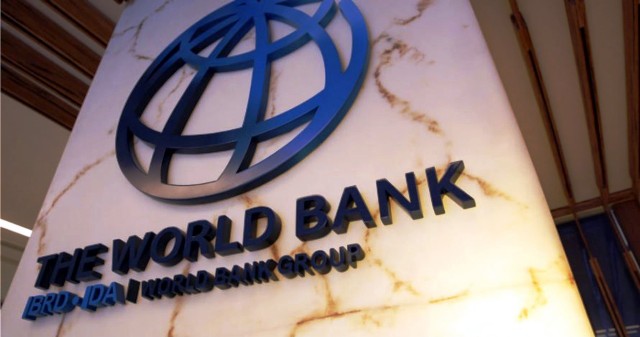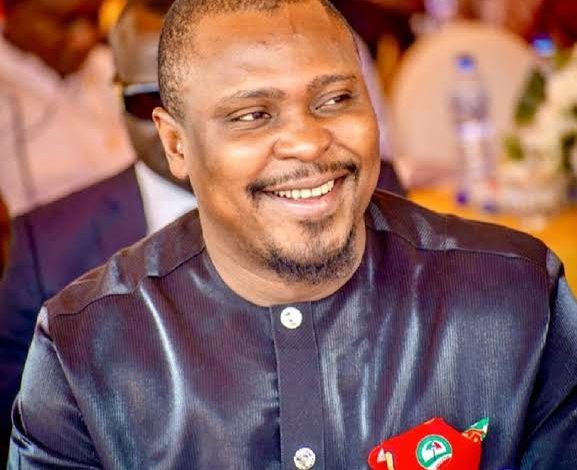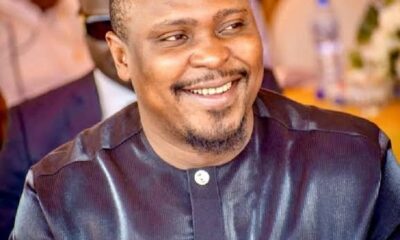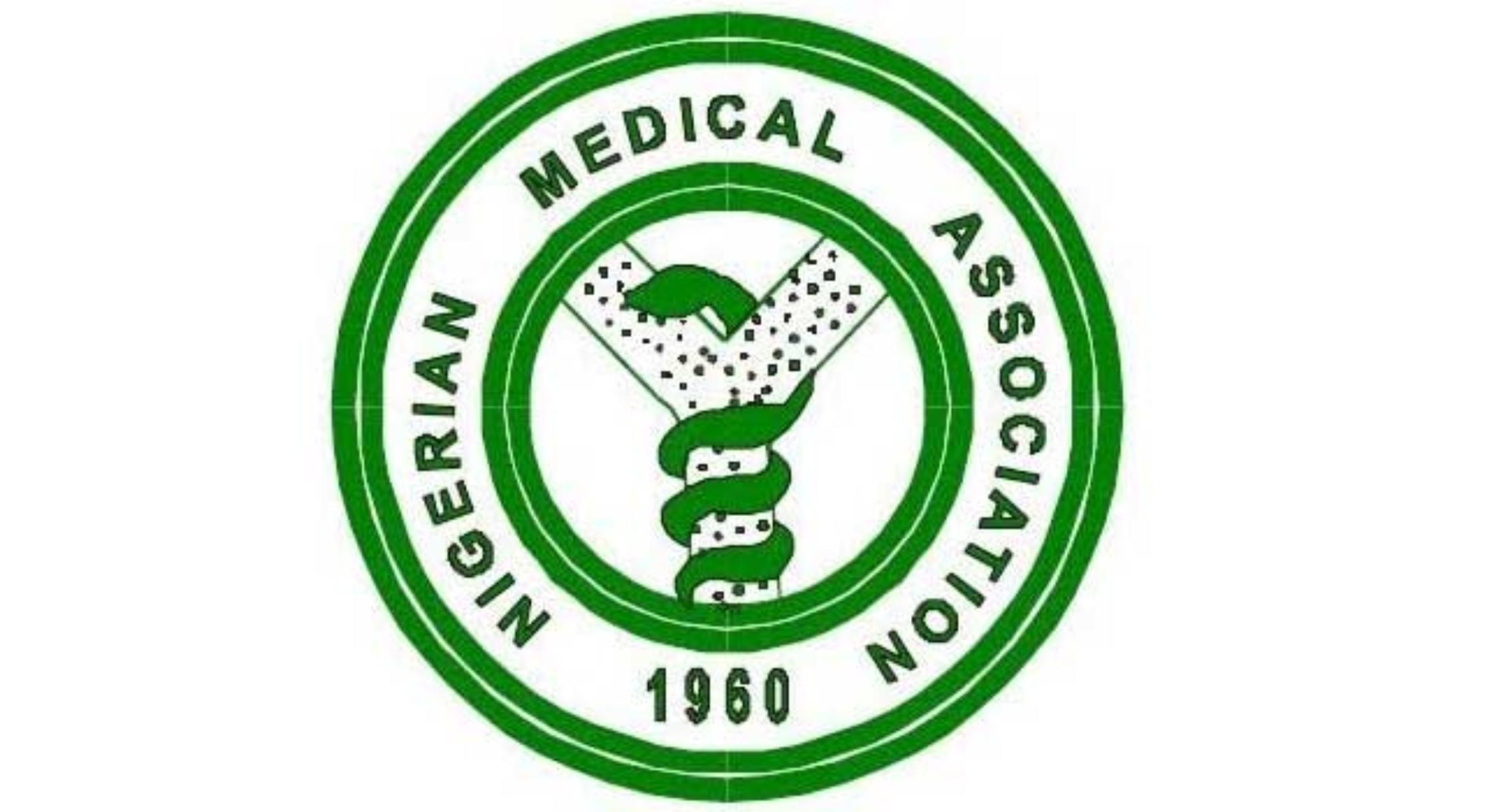News
Nigeria’s Economy Slipping, World Bank Warns …Dementia Rises By 400% In Nigeria -Report

The World Bank has warned that the Nigerian economy has been slipping since 1995, and this continued till 2018.
The bank, in its latest report, yesterday, on the regional economy titled, ‘Africa’s Pulse’, released the taxonomy of growth performance in sub-Saharan Africa, which focused on the macroeconomic and financial features that led to growth resilience on the continent.
According to the bank, the taxonomy is used to help identify the factors that are correlated with success or failure in economic growth performance in sub-Saharan Africa, with emphasis on macroeconomic and financial variables.
The analysis, it said, involved a series of macroeconomic variables for 44 sub-Saharan African countries from 1995 to 2018.
The key elements that determined the positions of each of the 44 sub-Saharan economies in the taxonomy, the World Bank said, included the level of income per capita of the countries; structural transformation, as captured by sectoral value-added share and sectoral employment share; and capital flows.
Others are level and composition of public sector indebtedness, as captured by the general government gross debt and its currency composition, and the outstanding external public debt.
The last of the indicators has to do with governance vis-a-vis government effectiveness, regulatory quality, control of corruption, voice and accountability, political stability, and absence of violence and rule of law.
According to the World Bank, the taxonomy compares the average annual GDP growth rates during 1995–2008 and 2015–2018 against predetermined thresholds.
It also categorised growth performance into five groups: falling behind, slipping, stuck in the middle, improved, and established. The five groups were further reclassified into three groups: Top tercile, middle tercile and bottom tercile.
The Bretton Wood Institution said, “If a country’s economic performance declined from 1995–2008 to 2015–18, the country is categorised in the bottom tercile, which includes ‘falling behind’ and ‘slipping.’ If a country’s growth rate remained invariant over time, between 3.5 and 5.4 per cent in both periods, it is categorised in the middle tercile (or stuck in the middle). If a country’s economic performance improved from 1995–2008 to 2015–18, with the growth of more than 5.4 per cent per year, the country is categorised in the top tercile, which includes the ‘improved’ and ‘established’ groups.”
Based on the above classification, the Nigerian economy was categorised alongside 18 other sub-Saharan African economies as slipping having recorded declined economic performance between 1995 and 2018.
The World Bank said, “The bottom tercile consists of 19 countries: Angola, Burundi, Botswana, the Republic of Congo, the Comoros , Gabon, Equatorial Guinea, Liberia, Lesotho, Mauritania, Malawi, Namibia, Nigeria, Sierra Leone, Eswatini, Chad, South Africa, Zambia, and Zimbabwe. These countries did not show any progress in their economic performance from 1995–2008 to 2015–18. For instance, their median economic growth rate decelerated, from 5.4 per cent per year in 1995–2008 to 1.2 per cent per year in 2015–18.”
The bottom performing economies, according to the World Bank, produce almost 60 per cent of the region’s total GDP, emphasising that the three largest countries in the region—Nigeria, South Africa, and Angola—and many commodity exporters are in this group.
Burkina Faso, Côte d’Ivoire, Ethiopia, Ghana, Guinea, Guinea-Bissau, Kenya, Mali, Rwanda, Senegal, and Tanzania made the top tercile.
The middle tercile countries are Benin, the Central African Republic, Cameroon, the Democratic Republic of Congo, Cabo Verde, The Gambia, Madagascar, Mozambique, Mauritius, Niger, Sudan, Sao Tomé and Príncipe, Togo, and Uganda.
The World Bank also cut its growth forecast for sub-Saharan Africa this year to 2.8 per cent from an initial 3.3 per cent.
The commodity price slump of 2015 cut short a decade of rapid growth for the region, and the bank said growth would take longer to recover as a decline in industrial production and a trade dispute between China and the United States take their toll.
The bank’s 2019 forecast means economic growth will lag population growth for the fourth year in a row and it will remain stuck below three per cent, which it slipped to in 2015.
“The slower-than-expected overall growth reflects ongoing global uncertainty, but increasingly comes from domestic macroeconomic instability including poorly managed debt, inflation and deficits,” the bank said.
The Bretton Wood Institution equally cut Nigeria’s growth forecast by 0.1 per cent.
It said, “Growth in Nigeria is projected to rise from 1.9 per cent in 2018 to 2.1 per cent in 2019 (0.1 percentage point lower than last October’s forecast).
“This modest expansion reflects stagnant oil production, as regulatory uncertainty limits investment in the oil sector, while non-oil economic activity is held back by high inflation, policy distortions, and infrastructure constraints.
“Growth is projected to rise slightly to 2.2 per cent in 2020 and reach 2.4 per cent in 2021, as improving financing conditions help boost investment.
“In Nigeria, although the manufacturing and non-manufacturing PMIs remained above the neutral 50-point mark—which denotes expansion—they fell further in February, due to weaker rises in output and new sales orders across firms.
“Household consumption in Nigeria has remained subdued, while multiple exchange rates, foreign exchange restrictions, low private sector credit growth, and infrastructure constraints have continued to weigh on private investment.”
The Chief Economist for Africa at the bank, Albert Zeufack, said the region could boost annual growth by about nearly two percentage points if it harnessed Information Technology more effectively.
“This is a game-changer for Africa,” he added.
However, the spokesperson for the Central Bank of Nigeria, Mr Isaac Okorafor, said the CBN under the current governor, Mr Godwin Emefiele, had shown so much ingenuity in managing the economy.
“You know the crisis that we have faced in the past three years. The bank has shown ingenuity in managing the situation and ensuring that everything is stable.”
Meanwhile, the Minister of Finance, Mrs Zainab Ahmed and the Governor, Central Bank of Nigeria, Mr Godwin Emefiele, have joined other economic experts from around the world to discuss issues affecting global economy in Washington DC, US.
The discussions are scheduled to hold between April 9 and April 14, under the auspices of the World Bank Group and the International Monetary Fund in Washington DC.
The 2019 Spring Meetings of the IMF and the World Bank is expected to bring together central bank governors, ministers of finance, parliamentarians, private sector executives, representatives from civil society organisations and the academia.
The experts will discuss issues of global concern, including the world economic outlook, poverty eradication, economic development and aid effectiveness.
The meeting will also feature seminars, regional briefings, press conferences and many other events with focus on global economy, international development and the world’s financial system.
Nigeria attends the meeting each year because of the quantum of investments and technical support it receives from both the IMF and the World Bank.
Although Nigeria currently has zero loans with the IMF, it enjoys technical support from the organisation.
The World Bank Group, on the other hand, is helping to fight poverty and improve living standards in the country through 33 Core Knowledge Product Reports and 29 ongoing National and Regional projects.
Meanwhile, Nigeria is still struggling with recent reports that ranked the country 6th among miserable people in the world, the country has again, scored another negative point with regards to its already battered health indices.
The country has again broken another unenviable record with the number of dementia cases growing by 400 per cent.
It would be recalled that dementia is a brain disorder that affects communication and performance of daily activities.
It is an umbrella term for a set of symptoms, including impaired thinking and memory, and often associated with the cognitive decline of ageing.
In Nigeria, sadly, little or no attention is given to mental health disorders.
Dementia victims are labelled witches or mentally derailed.
The level of awareness on mental health issues is poor and fraught with lots of misconceptions.
The culture of stigma and discrimination fuels access to care as mental disorders are linked to supernatural causes, including witchcraft, demonic possession, and even punishment from gods or ancestors.
In this part of the world, in most cases, these patients are abandoned to their fate.
Currently, over seven million Nigerians suffer from depression, according to the World Health Organisation (WHO) 2015 estimates.
The same report estimates that West Africa has about 4.8 million people with anxiety disorders.
These scary statistics may not be unconnected with the fact that Nigerians are becoming more stressed due to economic hardship and other stressful life events.
Nigeria is rated among top 10 countries that are over depressed and ranks among countries with the highest number of drug addicts, depression and dementia, among others.
Statistics by WHO show that an estimated 47.5 million people have dementia and there are 7.7 million new cases every year.
Developing countries like Nigeria account for 57.7 percent of the problem.
According to the Federal Ministry of Health, about 20-30 per cent of Nigerians suffer from mental illness.
The Permanent Secretary of the Ministry of Health, Abdulaziz Abdullahi, had at a Mental Health Action Committee and Stakeholders’ Workshop in Abuja disclosed that with a population of about 200 million, Nigeria had a high rate of mental illness.
This implies that Nigeria has about 60 million persons with mental illnesses.
However, as Nigeria battles with the mental disorders challenge with no policy on mental health in place, a study by the Journal of Global Health Reports published by the University of Edinburgh has revealed that dementia, a clinical syndrome caused by neuro-degeneration, has increased astronomically in Nigeria over the last two decades.
It is estimated that about 47.5 million people are living with dementia globally, with over two-thirds residing in Low and Middle-Income Countries (LMICs), including Africa, where there is very limited access to social protection, and relevant care, services and support.
This first national comprehensive study also revealed that several communities in Nigeria still link dementia to a normal process of ageing, with many patients stigmatised and abandoned in the belief that their condition is beyond any medical intervention.
Thus, many of those affected delay seeking medical care and endure poor outcomes.
However, the situation is exacerbated by poor mental health service access which partly results in high out-of-pocket expenses that few can afford.
It has been estimated that the number of dementia cases increased by over 400 per cent over a 20-year period, from 63,500 in 1995 to 318, 000 in 2015 among persons aged 60 years.
Prevalence was highest in North-Central; followed by North-West and South-West while the prevalence was also higher in urban settings compared to rural settings.
Alzheimer’s disease, one of the subtypes of dementia, had the highest prevalence while other dementia subtypes had prevalence rates less of than 1 per cent In the views of the Lead Researcher, the Centre for Global Health Research, University of Edinburgh, Dr. Davies Adeloye some of the factors responsible for the prevalence of this disease include genetic, cultural, and nutritional variation in the country.
He urged the government to provide comprehensive care and support institutions for people living with dementia as this was currently lacking in the country.
Adeloye advocated for a bill broadly focused on protecting the rights of individuals with mental disorders and setting standards for mental health practice in the country.
It is, therefore, important for policymakers to direct efforts at ensuring adequate infrastructure, personnel, training and research that focus on dementia, among other important mental health needs, in Nigeria.
Adeloye, who noted that 318,000 persons were affected as at 2015 regretted said to prevent the disorder there is need for Nigerians to maintain a healthy lifestyle by eating a healthy, balanced diet, maintaining a healthy weight, exercising regularly, keeping alcohol to a minimum level, stopping smoking and keeping blood pressure at a healthy level.
Reacting to the findings, a Clinical Psychologist, Lagos University Teaching Hospital, Dr Juliet Ottoh, who also described dementia as a general term for a massive decline in mental ability said when is severe, it can interfere with an individual’s life activity.
She said lack of mentally stimulating activities, not exercising and not eating healthy and balanced food could predispose an individual to dementia.
Ottoh urged Nigerians to quit smoking and embrace regular medical check-up for early detection and treatment.
“There are many different mental disorders, with different presentations. They are generally characterised by a combination of abnormal thoughts, perceptions, emotions, behaviour and relationships with others.
“Mental disorders include Depression, bipolar affective disorder, schizophrenia and other psychoses, dementia, intellectual disabilities and developmental disorders, including autism. Stigma is a big problem in Nigeria. It prevents people from seeking treatment; nobody wants to be seen entering a psychiatric hospital,” she counselled.
News
Bonny-Bodo Road: FG Offers Additional N20bn, Targets December Deadline

The Federal Government has agreed to offer additional N20.5 billion for the completion of the Bonny-Bodo road project in December.
The government, however, said if the construction company, Julius Berger, was not ready to accept the offer, the contract will be terminated.
Minister of Works, David Umahi, said this during a meeting with the Managing Director of Julius Berger, Lars Ritcher and members of Bodo-Bonny Road Peace Committee, on Wednesday in Abuja.
The reports that Julius Berger had requested asking for a N28 billion variation on the 82 per cent completed project.
The company hinged its request on the rise in exchange rate, construction materials, and diesel among others.
Umahi, however, said the government was willing to provide N20 billion out of the N28 billion that Julius Berger requested for.
According to him, the Bonny-Bodo road contract which was initially awarded at the cost of N120 billion in 2015, was later varied at N199 billion with a completion dateline of December 2023, which has since elapsed.
The Tide’s source recalls that in 2017, an agreement between the Federal Government, Nigeria Liquefied Natural Gas (NLNG) and Julus Berger on modalities for funding the project cost of N199.923 billion, without any further increase.
“If you do not accept the Federal Government’s offer by Friday and resume work on the site, the previously expired 14-day ultimatum for termination of project will be enforced.
“I want to let you know that we are the client. No contractor will dictate for this ministry, and there is no job that is compulsory that a particular contractor must do.
“We give you an offer. If you do not like the offer, you walk away. You don’t force us or we don’t force you.
“Agreement of contractual relationship is a mutual understanding,’’ the minister said.
Umahi said that had Julius Berger adhered to the project timetable, the project would have been completed on schedule before the impact of foreign exchange.
“Our position is very simple, we reject the conditions of Julius Berger totally and we ask Berger to please go back to the site to complete the project based on our offer.
“Our offer is unconditional and we say, accept or reject, so you cannot subject our offer to your conditions ,’’ he added
Umahi said the company should be humble in its dealings and exhibit solidarity during challenges.
Earlier, Richter had explained that the company suspended work on the site to seek some clarifications from the ministry.
According to him, the company asked for the augmemtation of N28 bilion because as at the time the contract was awarded the exchange rate was N305 to a dollar and diesel was N350 eor litre.
“We will still require some outstanding materials; that means that the initial agreement can’t fly because the variation of project is not sufficient and the exchange rate is also not in our favour to compensate the additional costs.
“That is why we decided to go back to our original proposal of the augmentation. Augmentation is a very normal process for all contracts,” the managing director said.
Chief Abel Attoni, Palace Secretary, Bonny Kingdom, expressed gratitude to President Bola Ahmed Tinubu over the decision to complete the Bodo-Bonny road project.
Attonu urged the parties to be patriotic and make the necessary sacrifice for the actualisation of the project.
News
Court Vacates Arrest Warrant Against Ehie, Five Others

The Federal High Court, sitting in Abuja, yesterday, set aside the warrant of arrest against Rt. Hon. Edison Ehie, the Chief of Staff, Government House, Rivers State, and five others.
Justice Emeka Nwite stated this while delivering his ruling in an application seeking to vacate the warrant of arrest which he issued on January 31, 2024.
The Judge said he was misled by the police in ordering the arrest of Ehie in connection with the burning of the Rivers State House of Assembly on October 30, 2023.
The Police, had told the court that Ehie and five others masterminded the bombing of the Rivers State House of Assembly amid a plot to impeach Rivers State Governor, Siminalayi Fubara.
The five others are Jinjiri Bala, Happy Benedict, Progress Joseph, Adokiye Oyagiri, and Chibuike Peter, alias Rambo.
Justice Emeka Nwite while setting aside the warrant said it has now become a mere academic exercise.
The judge further granted same to the 2nd to 5th Defendant/Applicant in same suit.
Femi Falana, SAN, and Oluwole Aladedoye, SAN, who appeared for the defendants in separate suits, held that the court lacked the jurisdiction to have granted the order.
While Falana filed a motion seeking an order to set aside the January 31 order by Justice Nwite, Aladedoye applied for a stay of execution of the arrest order.
In a motion marked: FHC/ABJ/CS/112/2024 dated February 2 and filed on February 7 by Falana, Ehie sought two orders, including “an order setting aside the order made on January 31 for want of jurisdiction.
“An order of this honourable court staying the execution of the order made on the 31st January 2024, pending the hearing and determination of this application.”
Giving six grounds of argument, Falana argued that the complainant had not filed any criminal charge or motion before the court.
The senior lawyer argued that the court lacked the territorial jurisdiction to entertain the ex-parte application as the alleged offences of conspiracy, attempted murder, murder and arson took place in Port Harcourt, the state capital.
“He submitted that the court lacked the vires to grant an application to arrest and declare his clients wanted in respect of the alleged offences.
“The complainant/respondent (IG) did not adduce evidence of terrorism in the affidavit in support of the application.
“The complainant/respondent did not cite any section of the Terrorism Prevention Act, 2013 (as amended) alleged to have been contravened by the applicants,” he argued.
Aladedoye in a motion on notice dated and filed February 9, on behalf of the five defendants, sought two orders, including
“an order staying execution or further execution of the order(s) of this honourable court made on the 31st of January, 2024, pending the hearing and determination of the appeal filed by the applicants.
“An order of injunction restraining the complainant from carrying out or further carrying out the orders of this honourable court made on the 31st January 2024, pending the hearing and determination of the appeal filed by the applicant in this case.”
Giving a three-ground argument, Aladedoye said that a notice of appeal had already been filed against Justice Nwite’s orders.
According to the senior lawyer, the notice of appeal contains grounds that challenge the jurisdiction of the honourable court.
The Inspector-General had, in a charge marked: FHC/ABJ/CR/25/2024, arraigned the defendants on a seven-count criminal charge bordering on terrorism and murder.
News
13 Students Bag First Class, 182 PhD As IAUOE Graduates 5,550, Today
The authorities of Ignatius Ajuru University of Education (IAUOE), Rumuolumeni, in Rivers State, have stated that 13 students will be graduating with first class while 182 graduands will bag Ph.D during the 42nd convocation ceremony of the university billed to hold today and tomorrow.
The Acting Vice Chancellor of the University, Prof. Okechuku Onuchuku, disclosed this during pre-convocation press briefing held in his office, yesterday, to unveil the programme for the convocation ceremony.
Onuchuku said that the 13 students were among the 4,653 graduands expected to graduate for the 2022/2023 academic session with first degree, while 897 students will be graduating with postgraduate degrees.
The Acting Vice Chancellor while giving the breakdown stated that 13 students made first class, 890 students bagged second class upper while 2,739 students had second class lower for first degree.
He further stated that 182 graduands bagged PhD, 667 got master’s degree and 48 got postgraduate diploma, adding that the convocation ceremony will hold today and tomorrow for first degree graduands and postgraduate graduands respectively.
He said that a total of 47 programmes out of the 54 programmes being undertaken at the first degree levels had been given full accreditation by the National University Commission (NUC) as well as all the programmes at the postgraduate school.
“We have ensured that our programmes both at the first degree and post graduates are in line with the NUC stipulated guidelines and speculations. We have also ensured that we are in line with both our academic and administrative policies,” he said.
Prof. Okechukwu urged the graduating students of the institution to always remember to use thier positions to help their alma mater as well as project the institution in a good image in the larger society.
“Try to ensure you finish any project you want to do, evaluate it first and avoid unfinished or abandoned projects. We will be graduating first degree graduands on Friday while Saturday will be for postgraduates, “he added.
Prof. Onuchukwu also said his administration had achieved a lot since he assumed office as Acting Vice Chancellor, stressing that his administration had improved on the welfare of the staff and the students.
“There are a lot of projects completed in the school; we have also given scholarship to some students and also encouraged departments to do same. We also impacted positively on our host communities”, he said.
Akujobi Amadi
-
News3 days ago
German Police Arrest 11 Nigerians For Dating Scam
-
Opinion3 days ago
Let The Poor Breathe
-

 Nation2 hours ago
Nation2 hours agoSDP National Chairman Lauds FG’s Efforts To Tackle Insecurity
-

 News3 days ago
News3 days agoCourt Vacates Arrest Warrant Against Ehie, Five Others
-
Nation3 days ago
Monarch Hails Fubara Over Road Project
-

 Rivers2 hours ago
Rivers2 hours agoCleric Attributes Nigeria’s Unity To God’s Grace
-

 Niger Delta3 days ago
Niger Delta3 days agoRSG Seals Two Hospitals In Bonny …Set To Inaugurate Anti-Quackery Committee
-
Entertainment3 days ago
Davido Narrates How His Song Became President’s Ringtone

